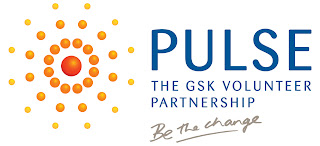
I had trained “Parent-child Communication to Promote Sexually Healthy Youth” to implement community – base for parenting education
Almost participants are the People living with HIV/AIDS network and the officer from the Ministry of Public Health.

The program contents including:• Adult-teen communication about sex
• If more adults were prepared to have positive encounter, more teens would have the support they need
• Good listening skills and non-judgmental attitudes are key manners for becoming trusted source for adolescents
Objectives: By the end of the 2-day workshop, participants will have
1. Explored and examined social environments that surrounded and challenged young people these days
2. Analyzed generation gaps regarding values and lifestyle which affects the interaction and communication between parents and teenage children
3. Assessed one own values regarding sex, sexuality, and sexual health
4. Identified the importance of being open-minded and non-judgmental towards diverse values regarding sexuality
5. Practiced necessary skills for parents that will enhance effective communication with their teenage children
6. Applied communication skills for constructive conversations with young people on sex, sexuality and sexual health
Workshop Agenda
Parent-child Communication
to Promote Sexually Healthy Youth

Day 1 Activity 1 Workshop Introduction
Warm-up, self-introduction, workshop expectation, workshop objectives and agenda, ground rules
Activity 2 Being a Parent
To explore and share the feeling of being a parent
Activity 3 Youth Situation Analysis
To review the situation that youth is facing today and identify the hidden and challenging conditions related to sexual behaviors
Activity 4 Understanding about Sex and Sexuality
To distinguish the differences between the terms "sex" and "sexuality”, explore the different components of sexuality, and identify source of learning about sexuality of young people as well as the importance of parents in communicating about sex with children
Activity 5 Being Young
To raise awareness and understanding about youth - nature, critical period, challenges that young people face today as well as to recognize that adolescents can make good choices and decisions if they have complete information, healthy attitudes and necessary skills

Activity 6 Sexual Values Clarification
To understand one own attitudes and values towards sexual behaviors and be aware of not being judgmental of others who may have different views or opinion
Day 2 Activity 7 Warm-up and Recap
To recapitulate the day-one learning
Activity 8 Talking about sex to young people
To examine the complication and challenges young people face about their sexuality and sexual life and explore one’s feeling towards sexual related questions from teens
Activity 9 Effective Communication: Road Blocks and Building Blocks
To explore how their verbal and non-verbal communication either hinders or facilitates effective communication with their teen.
Activity 10 Active Listening
To describe how using active listening skills can increase their teens' sense of being supported emotionally by them as parents and how it can increase their connectedness with their children; identify barriers to active listening and ways to overcome those barriers; and practice and demonstrate effective active listening skills.
Activity 11 Time to Talk
To apply communication skills in practicing discussing about sex with young adult
Activity 12 Workshop closure and evaluation
To gain feedback from participants regarding what they have learned and suggestions for future training

This training will be completed that all participants are able to coach parents in communities. That is called “Facilitator” or trainer. I myself and Team did train to 20 parents who were very kindness and humble people. Our team are very fantastic collaborators and facilitators that we have learnt whilst we did training, reflection what we should do develop for future.
For the participants they had met all objectives from above and they also got more learning regarding sexual healthy, open minded and good listening skill more than previous one.
They were impressive our team coaching and would love us to come back again.








